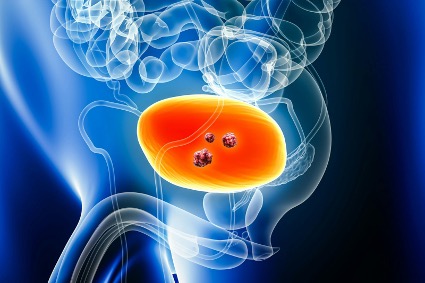FDA Approves Opdivo Plus Chemotherapy for Frontline Treatment of Unresectable, Metastatic Urothelial Carcinoma
March 9, 2024
Source: drugdu
 418
418
Davy James
Opdivo (nivolumab) plus cisplatin and gemcitabine was found to improve overall survival and progression-free survival compared with chemotherapy alone in patients with unresectable or metastatic urothelial carcinoma. The FDA has approved Bristol Myers Squibb’s Opdivo (nivolumab) plus cisplatin and gemcitabine in the frontline treatment of adults with unresectable or metastatic urothelial carcinoma (UC).1 The regulatory action adds to an array of approved indications for Opdivo, both as a single agent and in combination therapy, including for patients with unresectable or metastatic melanoma; metastatic non-small cell lung cancer; advanced renal cell carcinoma; classical Hodgkin lymphoma; recurrent or metastatic squamous cell carcinoma of the head and neck; locally advanced or metastatic UC; microsatellite instability-high or mismatch repair deficient metastatic colorectal cancer; and hepatocellular carcinoma.2
The FDA has approved Bristol Myers Squibb’s Opdivo (nivolumab) plus cisplatin and gemcitabine in the frontline treatment of adults with unresectable or metastatic urothelial carcinoma (UC).1 The regulatory action adds to an array of approved indications for Opdivo, both as a single agent and in combination therapy, including for patients with unresectable or metastatic melanoma; metastatic non-small cell lung cancer; advanced renal cell carcinoma; classical Hodgkin lymphoma; recurrent or metastatic squamous cell carcinoma of the head and neck; locally advanced or metastatic UC; microsatellite instability-high or mismatch repair deficient metastatic colorectal cancer; and hepatocellular carcinoma.2
“This approval marks an important advancement in a historically difficult-to-treat setting, where there has been a need for new and differentiated first-line approaches that may offer patients a chance to live longer,” Guru P. Sonpavde, MD, medical director of Genitourinary Oncology, Phase I Clinical Research Unit, and Christopher K. Glanz Chair for Bladder Cancer Research at the AdventHealth Cancer Institute, said in a press release. “Based on outcomes and the safety profile seen in the CheckMate -901 clinical trial, the approval of Opdivo in combination with cisplatin and gemcitabine has the potential to change how metastatic or unresectable UC is treated for certain patients and offers them new hope.”1
Opdivo is a monoclonal antibody that binds to the PD-1 receptor and inhibits tumor growth by improving T-cell function.2,3
The latest approval was based on findings from the open-label, randomized Phase III CheckMate –901 trial (NCT03036098) comparing Opdivo combined with cisplatin and gemcitabine followed by Opdivo monotherapy (n=304) vs. cisplatin-gemcitabine alone (n=304) in patients with previously untreated unresectable or metastatic UC. The trial’s primary efficacy endpoints were overall survival (OS) and progression-free survival (PFS) as assessed by Blinded Independent Central Review.
Enrollment criteria allowed for prior administration of neoadjuvant or adjuvant chemotherapy if patients experienced disease recurrence 12 months or more following completion of treatment. Patients were excluded if they were not candidates for cisplatin or had active central nervous system metastases.4
Patients enrolled in the trial were randomly assigned on a 1:1 basis to the Opdivo with chemotherapy cohort or chemotherapy alone cohort. Patients in the Opdivo cohort were administered 360 mg of nivolumab plus 70 mg/m2 of cisplatin on day one and 1000 mg/m2 of gemcitabine on days one and eight across a 21-day treatment cycle for up to six cycles, followed by 480 mg of Opdivo monotherapy every four weeks until disease progression or intolerable toxicity. Treatment with Opdivo was continued for no longer than two years after the first dose. Patients in the control group were administered the same chemotherapy dose and schedule until disease progression or intolerable toxicity.
Median OS in patients administered Opdivo with chemotherapy was 21.7 months compared with 18.9 months in the chemotherapy alone cohort, which translates to a 22% drop in the risk of death. Median PFS in the Opdivo with chemotherapy cohort was 7.9 months compared with 7.6 months in the chemotherapy alone cohort, which translates to a 28% decrease in the risk of disease progression or death.
The objective response rate in the Opdivo with chemotherapy cohort was 57.6% compared with 43.1% in the chemotherapy cohort. Complete response was 22% with the Opdivo combination compared to 12% with chemotherapy and partial response was 36% with the Opdivo combination compared with 31% in the chemotherapy group. Median duration of response with Opdivo plus chemotherapy was 9.5 months compared with 7.3 months with chemotherapy alone.
In terms of safety, the most common adverse effects experienced by 15% or more of patients in the Opdivo combination cohort included nausea, fatigue, musculoskeletal pain, constipation, reduced appetite, rash, vomiting, peripheral neuropathy, urinary tract infection, diarrhea, edema, hypothyroidism, and pruritis.
Read more on
- Gusekirumab Injection Accepted by CDE, Multiple Pipelines Advancing Simultaneously March 4, 2026
- Yifan Pharmaceutical’s teriparatide injection has been accepted by the CDE (Center for Drug Evaluation), adding a new domestic player to the osteoporosis treatment field March 4, 2026
- //news.yaozh.com/archive/47318.html PD-1 sales surge March 4, 2026
- A major breakthrough! Roche’s oral BTK inhibitor achieves its third Phase III clinical trial victory, a game-changer in the multi-billion dollar MS (manufactured pharmaceuticals) market. March 4, 2026
- GB19 Injection Approved for Clinical Trials of Cutaneous Lupus Erythematosus March 4, 2026
your submission has already been received.
OK
Subscribe
Please enter a valid Email address!
Submit
The most relevant industry news & insight will be sent to you every two weeks.



